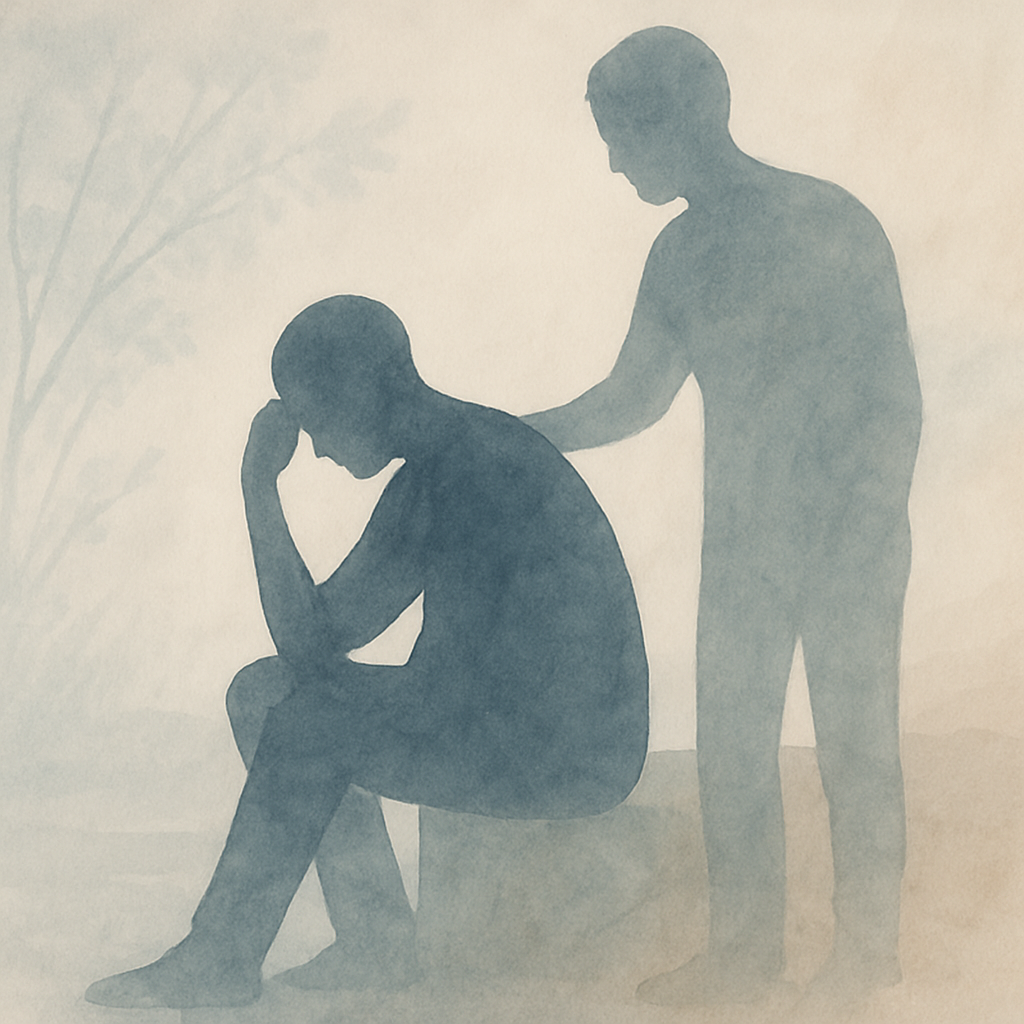Noticing sudden emotional or behavioural changes in someone you care about can be unsettling. When these changes become severe or distressing, you might begin to wonder: How can you identify a mental health crisis in someone close to you? Understanding the signs early can make a difference; providing the right support at the right time can help someone feel safer and less alone.
At Khiron Clinics, we support individuals and families through complex emotional and psychological challenges every day. This guide offers practical insight into recognising signs of a mental health crisis, knowing when to seek urgent help, and how trauma-informed support can be a stabilising force. Whether you’re a family member, friend, or clinician, equipping yourself with this information can help you respond with confidence and compassion.
Recognising the Warning Signs of a Mental Health Crisis in Loved Ones
Noticing subtle changes in someone’s behaviour or mood is often the first sign that something may be wrong. A mental health crisis doesn’t always happen suddenly; it can develop gradually through ongoing distress that eventually becomes too much to manage alone.
Some early warning signs to watch for include:
- Withdrawal from friends, family, or usual activities
- Noticeable mood swings or sudden emotional outbursts
- Expressions of hopelessness or feeling trapped
- Changes in sleep or eating patterns
- Difficulty concentrating or making decisions
In some cases, the signs become more urgent. A person may talk about self-harm, express suicidal thoughts, or seem overwhelmed by fear, paranoia, or confusion. They might begin neglecting daily responsibilities, struggle to care for themselves, or appear disconnected from reality.
Staying calm and present can help someone feel seen and less alone. You don’t need to have all the answers; just recognising these changes and offering a listening ear can be the first step. If you’re unsure about what you’re witnessing, it’s always okay to reach out for advice. Knowing when to speak up could give someone the support they need before the situation becomes more serious.
Understanding When an Urgent Mental Health Response May Be Needed
There are moments when concern becomes something more immediate—when a mental health crisis begins to affect someone’s safety, wellbeing, or ability to function day-to-day.
An urgent mental health response may be needed if you observe:
- Talk of suicide or not wanting to live
- Acts of self-harm or threats to harm others
- Disorientation or paranoia
- Inability to carry out daily tasks or communicate clearly
- Sudden, extreme shifts in mood or behaviour
Sometimes these signs are direct. At other times, they may be subtle, such as someone expressing that they cannot cope or that life feels unmanageable. Even without a dramatic event, these expressions matter. If someone says they’re not okay, believe them.
Loved ones may feel unsure about how serious the situation is, especially if the person resists help or denies anything is wrong. This is where support from a health professional or crisis team can make a difference. Mental health emergencies can develop quickly. Reaching out early, even just for advice, is never a mistake.
At Khiron Clinics, we regularly assist families, friends, and referring clinicians in identifying the signs that call for an urgent response. A timely conversation can be life-saving. No one needs to wait for things to escalate further; early action often leads to better outcomes.
The Role of Trauma-Informed Approaches in Supporting Individuals During a Health Crisis
Many people in the middle of a mental health crisis are also carrying the weight of past trauma. At Khiron Clinics, we recognise how past experiences can shape current distress. A trauma-informed approach helps ensure that care is not only effective but also respectful and safe.
Rather than focusing solely on symptoms, trauma-informed care looks at how the nervous system responds to threat or overwhelm. Some people may shut down, while others might appear agitated and afraid. Understanding these responses allows professionals to respond with compassion, rather than judgement.
Our unique treatment programmes are delivered by clinicians who are informed, trained and supervised by some of the world’s top trauma experts including Dr Bessel Van Der Kolk, Dr Janina Fisher, Dr Stephen Porges, Deb Dana, Dr Dick Schwartz, Licia Sky and Linda Thai. We offer therapies that work directly with the nervous system to address and heal the underlying causes of mental and physical health issues, offering a path to lasting recovery. This includes using Polyvagal-informed strategies to support nervous system regulation, increase felt safety, and build stability and trust during moments of distress.
Trauma-informed support also includes:
- Communicating clearly and transparently about the support available, so you know what to expect at every step
- Actively involving family members and loved ones where it feels supportive and appropriate
- Offering choices and respecting personal autonomy to ensure each individual’s dignity is upheld
- Providing practical, grounded guidance tailored to each stage of the healing journey
- Creating a sense of emotional and physical safety, especially in moments of dysregulation or distress
- Supporting regulation and trust through Polyvagal-informed strategies that engage the nervous system directly
- Encouraging collaboration between clients, clinicians, and loved ones to build shared understanding and empowerment
- Acknowledging and honouring each person’s unique story, background, and lived experience
When someone feels seen and heard, even in crisis, it builds the foundation for recovery. Whether you’re a family member, friend, or professional, understanding the impact of trauma helps reduce shame and creates space for healing.
Supporting Family and Friends Through a Mental Health Crisis
When someone close to you is in crisis, the emotional weight can be heavy. Feelings of fear, uncertainty, or helplessness are common. Yet, your steady presence, and remaining calm, available, and non-judgemental can offer meaningful reassurance during a frightening time.
Simple actions can go a long way:
- Check in regularly, even if they don’t always respond
- Offer to sit with them or help with small tasks
- Listen without trying to fix or explain away their feelings
- Remind them they are not alone and that support is available
If you’re unsure what to do, seek guidance. Calling a health professional, local crisis team, or the Samaritans can help you respond more confidently. These services often offer advice not just for the person in crisis, but for family and friends navigating the situation alongside them.
Support groups can also provide a sense of connection. They allow you to share your experiences and learn from others facing similar challenges. Looking after your own mental health matters too; set boundaries where needed, take breaks, and ask for help if you’re feeling overwhelmed.
By staying connected with crisis teams and trusted professionals, families can help build a network of support that continues even after the immediate crisis has passed. At Khiron Clinics, we’re committed to that continuity of care, working in partnership to support every step of the recovery process.






